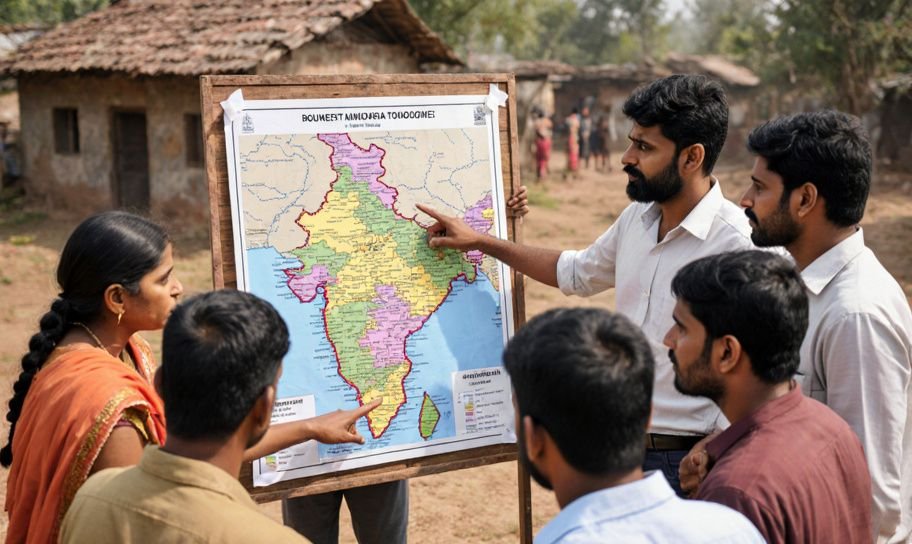
Summary: A series of court cases challenged the new voting area boundaries in Maharashtra. Ganesh Shivajirao Savle Patil and other people who brought the cases argued that the changes were random and politically motivated, but the court decided to keep the new boundaries, stressing the importance of having elections on time.
A number of legal actions were taken against the State of Maharashtra challenging the final announcement of ward formation for local elections. The main issue was the redrawing of voting areas, which some argued was done unfairly.
The court, led by Judges Manish Pitale and Y.G. Khobragade, made it clear that their ability to get involved was limited. They pointed out that:
"The Supreme Court and this Court have referred to the relevant parts of the Constitution concerning various steps to be taken by the concerned authorities for conducting elections."
The court emphasized that it couldn't get involved unless there was a clear breaking of rules.
Many people who brought the cases, including Ganesh Shivajirao Savle Patil and others, claimed that the changes to the voting area boundaries were random. They argued that:
The court looked into the complaints and found that the authorities had followed the rules laid out in a government order from June 12, 2025. The order required:
The court noted:
"The petitioners have not been able to make out a case to hold that the respondents have used their power in a random or harmful way."
The court dismissed all cases, emphasizing the importance of having elections on time as directed by the Supreme Court. The judges highlighted:
"If we lightly interfere in such matters, it would result in derailing the entire election process."
In the end, the court upheld the new boundaries, allowing the elections to move forward without further delay. This decision highlights the careful balance between legal oversight and the need for efficient election processes.